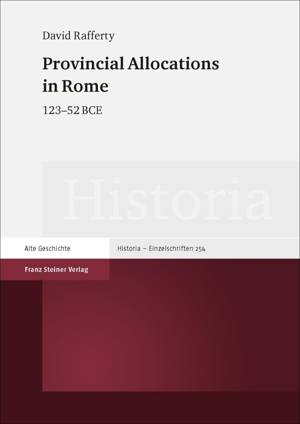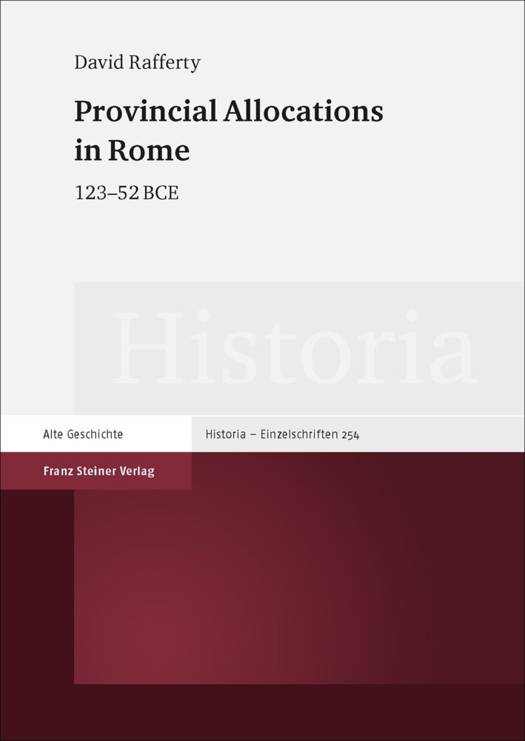
- Afhalen na 1 uur in een winkel met voorraad
- Gratis thuislevering in België vanaf € 30
- Ruim aanbod met 7 miljoen producten
- Afhalen na 1 uur in een winkel met voorraad
- Gratis thuislevering in België vanaf € 30
- Ruim aanbod met 7 miljoen producten
Zoeken
Omschrijving
This study is the first comprehensive treatment of the provincial allocations system in the late Roman Republic, between the provincial law carried by Gaius Gracchus in 123 BCE and that carried by Pompeius Magnus in 52 BCE. It considers the actual process of allocations, from the Senate's decree of consular and praetorian provinces through to the transfer of command on the ground. Different chapters address the system of allotment (sortitio), the authorisation of troops and funds (ornatio), and the ritual prerequisites for departure, all based solidly on the surviving evidence. An appendix recording the Senate's year-by-year decisions supports this and allows us to see trends in the data. Since provincial questions were of central importance to the senatorial class, they were the source of many of the political contests which dominate our source record. And at every stage, the institutions shaped the politics. A new picture emerges, of structural conflicts revolving around the relationship between consuls and tribunes. As Rafferty argues, this made the provincial allocations system one of the central causes of Rome's growing political dysfunction in the late Republic.
Specificaties
Betrokkenen
- Auteur(s):
- Uitgeverij:
Inhoud
- Aantal bladzijden:
- 243
- Taal:
- Engels
- Reeks:
- Reeksnummer:
- nr. 254
Eigenschappen
- Productcode (EAN):
- 9783515121194
- Verschijningsdatum:
- 22/02/2019
- Uitvoering:
- Hardcover
- Formaat:
- Genaaid
- Afmetingen:
- 170 mm x 239 mm
- Gewicht:
- 5669 g

Alleen bij Standaard Boekhandel
+ 132 punten op je klantenkaart van Standaard Boekhandel
Beoordelingen
We publiceren alleen reviews die voldoen aan de voorwaarden voor reviews. Bekijk onze voorwaarden voor reviews.











